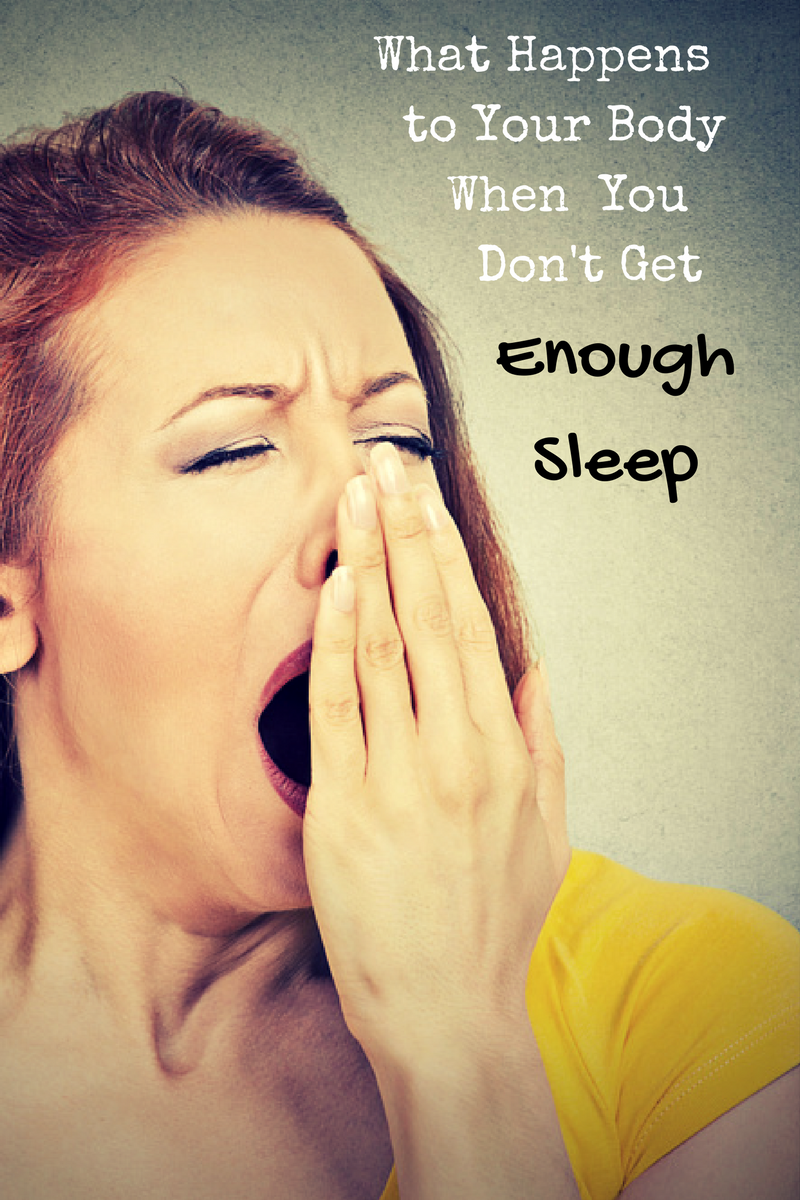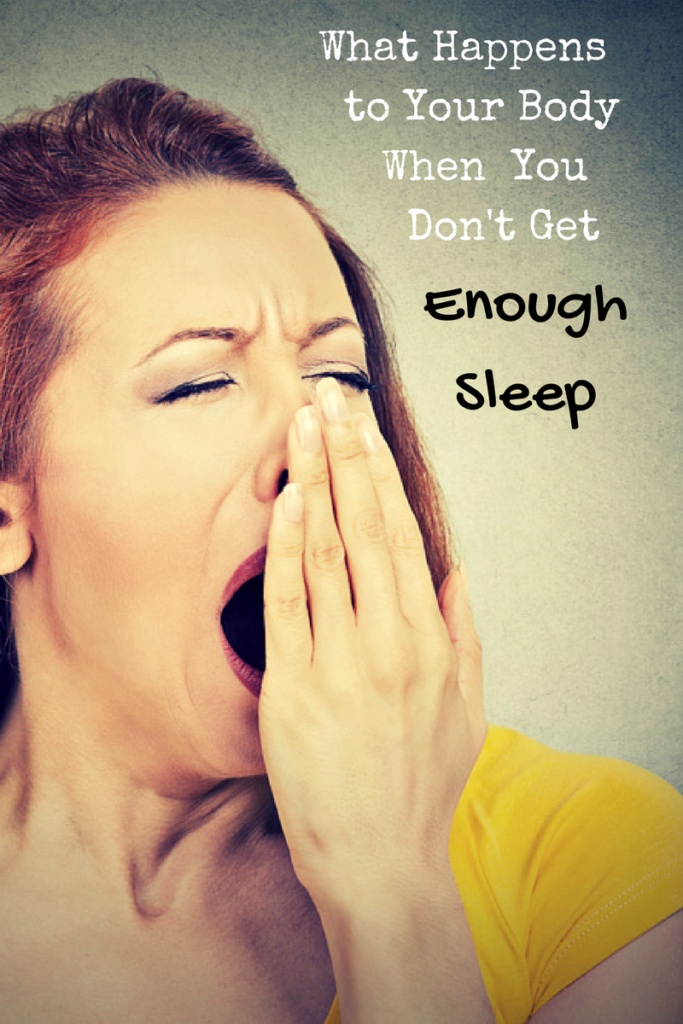This post contains affiliate links. Click here to read my affiliate policy.
Last Updated on January 2, 2024

I’m known for making down-to-earth paleo recipes but all the changes in my diet meant nothing when I wasn’t getting enough sleep.
Seriously, I was in the best shape I’ve been in years and the minute my sleep went off the rails, I was back in a depressive fog, even at one point so low that I considered suicide.
I remember looking at my son’s face and thinking. No. I will fight for this life. I will do exactly what I did when I was told I was pre-diabetic. I would take control of my health and read every resource, every study and watch every expert to fix my sleep.
It wasn’t easy weeding through fact and fiction and many nights I was up staring at the ceiling, praying sleep would come over me. It was when I was researching that I was shocked to learn what happens to your body when you don’t get it enough sleep. Sleep deprivation is scary and you can actually die from lack of sleep.
Why Sleep Is Important:
- Poor sleep can lead to gain weight. Lack of sleep is linked to increased hunger and appetite due to the fact that appetite hormones, ghrelin and leptin, are regulated while you are asleep. In addition, lack of sleep not only causes you to have an increased appetite, but it also causes you to crave high-carb, high-fat foods. Furthermore, people who suffer from sleep disorders and sleep deprivation tend to have higher BMIs than those who do not. Therefore, if you are trying to lose weight, how much sleep you get each night is just as important as what you eat and how much you exercise (SOURCE)
- Poor sleep can lead to serious health problems. Sleep deprivation and chronic sleep disorders put you at a higher risk for:
- Stroke
- Heart attack
- Heart disease
- High blood pressure
- Diabetes and prediabetes
- Irregular heartbeat
In fact, sleeping less than 7 hours a night can put you at an increased risk of heart disease and stroke (SOURCE)
- Poor sleep can lead to depression. Sleep disorders as well as poor sleep habits are strongly linked to depression and even suicide (SOURCE). People who sleep for less than 6 hours a night are more likely to be diagnosed with depression or anxiety. Unfortunately, it becomes a downward spiral because sleep loss aggravates depression, and depression makes it harder to sleep. However, treating sleep disorders and poor sleep habits can help to diminish the signs of depression and vice versa. (SOURCE)
- Poor sleep can lead to inflammation and a weakened immune system. Poor sleep is strongly linked to inflammation in the body, especially Inflammatory Bowel Disease (IBS). Furthermore, poor sleep actually increases the likelihood of an IBS recurrence. (SOURCE) Sleep also affects a person’s immune system as well. People who sleep less than 8 hours a night are more likely to suffer from colds than those who sleep 8 or more hours a night. (SOURCE)
- Poor sleep can lead to impaired brain function. Sleep is critical for optimal brain function. Poor sleep impairs your abilities to concentration, reason, pay attention, be alert, and problem solve. (SOURCE) In fact, poor sleep can negatively affect brain function to a similar degree that being intoxication does! Basically, when you don’t get enough sleep, your brain functions as if you are drunk. (SOURCE)
[tweetshare tweet=”Sleeping less than 7 hours a night reduces your life expectancy.” username=”@agirlworthsavin”]
After living through my own personal sleep nightmare, I know that reclaiming good sleep is possible and here are some easy, practical tips.
12 Tips To Help You Sleep Better:
- Sleep in a pitch-black room. Even the slightest bit of light can disrupt your sleep. To keep this from happening, block or remove all light sources from your bedroom. This means purchasing black-out blinds for the windows and covering LEDs with electrical tape. If you have a digital alarm clock, turn it to face down or away from your bed in order for the light not to be visible. If you cannot block all sources of light in your bedroom, a comfortable eye-mask could do the trick.
- Power down two hours before bed. Artificial bright lights and blue light (emitted from electronic devices such as computers and smartphones) keep your brain alert because it tricks your brain into thinking that it’s still daytime.
- Keep your bedroom cool. Being too hot or too cold can greatly impact your sleep. Typically, between 68 degrees F and 70 degrees F seems to be a comfortable temperature range for most people
- Be consistent with your sleep. This means to go to bed and to wake up at the same times every day – even on the weekends. People with irregular sleep patterns often suffer from poor sleep. This is because going to bed and waking up at different times alters a person’s circadian rhythm cycle, which is the body’s mechanism for aligning itself to day and night and regulating sleep.
- Go to bed before 11PM. Your body produces more cortisol after 11PM in order to keep you awake. If possible, always go to bed before 11PM to eliminate the cortisol surge since high cortisol levels result in insomnia and overall poor sleep patterns.
- Stop drinking coffee by 2pm everyday. Obviously, sleep and coffee don’t go hand-in-hand. Therefore, you should not drink coffee and other forms of caffeine after 2pm or at least 8 hours before you go to bed. Any coffee that you drink later than that should always be decaffeinated.
- Relax. Make relaxation part of your night time routine. You can try meditation, prayer, breathing exercises, reading, taking a hot bath, coloring adult coloring books, or anything else that helps to quiet your mind and put you in a relaxed state before going to bed.
- Go outside in the morning. Spending at least 15 minutes outside every morning in natural sunlight will help trigger your brain to wake up and to be alert throughout the day.
- Put your Phone on airplane mode before you go to bed or preferably earlier when you are powering down for the night. Obviously, message alerts and calls will interrupt your sleep. However, another important reason is that cell phones emit electromagnetic radiation, which disrupts sleep cycles as well as being dangerous to your health. If you must have your cell phone turned, place it several feet from your bed and never sleep with your it on your nightstand unless it’s set to airplane mode.
- Exercise. Regular exercise is one of the best ways to promote sleep and overall good health. However, vigorous exercise shouldn’t be performed for at least 2 hours before bed since it gets your adrenaline pumping and makes it harder to fall asleep. If you must exercise close to bedtime, gentle yoga is a better choice since it will calm you and put you in a relaxed state before bed.
- Make sure that your affordable fiberglass free mattress and pillows are comfortable. I know that this one seems obvious, but sometimes we get so accustomed to our mattress and pillow that we don’t notice when they are uncomfortable. Furthermore, it is recommended that you replace your mattress every 5 to 8 years and pillows every 12 to 18 months. Also, make sure to purchase a pillow that supports your primary sleep position. If you sleep on your stomach, you should use a thin, flat pillow. If you sleep on your side, you need a thick, firm pillow to support your head and neck.
- BONUS TIP: Get tested for sleep apnea and other sleep disorders. Sometimes being unable to sleep might be the sign of a serious condition. Sleep apnea is a condition that causes people to stop breathing for short periods of time when they sleep and can occur hundreds of times a night. Losing weight and avoiding alcohol might help, but you should consult a doctor or a sleep specialist if the problem is severe.



This is such an important topic to cover – an aspect of health that is neglected by so many (even though it takes up a whole 1/3 of our lives!). And it’s kinda glorified in a way, the ability to perform on little sleep and “hustle”. I think you work way more efficiently and creatively on 8 hours and also don’t harm your health. Anyway, great article, I enjoyed reading it :)!
Oh man. So #2 hits me so hard. I have lived it so much. Having 3 kids only spaced 2 years apart definitely doesn’t bode well for a mom’s sleep! I feel like I am finally coming out of the sleepless fog 3 1/2 years after my last baby! I am working on healing the effects that sleep deprivation has done to me! Thank you for getting this important info out – it is not worth it to ignore and push through!
Thanks for this great info! I am trying to make sleep more of a priority as I heal from chronic illness. It makes such a big difference!!
Hmm, I feel like you are writing this to me since I haven’t slept since we got our puppy in January 🙂 But seriously, everything you say is SO true. People tend to go on less sleep because it’s like a badge of honor to do so, but it’s so bad for you. Glad you are providing this info for people so they can avoid the bad effects of sleep deprivation!!
#momlife
But thanks for the great reminder to get the hours in, even if it means for-going my nighttime netflix marathon 😉
This is such great information! I LOVE sleep and do my best at making it a priority. With 2 littles it can be tough. I need to remember all this when I’m enjoying the quiet time instead of sleeping!
It’s so true that sleep is so important to us. I learn a lot from this article. Thanks so much for sharing !
It is so true! When I don’t get enough sleep, I look older and puffier (is that a word?) and it makes my brain foggy. My 91 year old MIL’s secret to looking young at 91 is taking lots of naps 🙂
This is wonderful information and proves very important for everyone to read.
I love taking naps. I find them refreshing and rejuvenating.
Sigh. I’m reading this and knowing I am already up too late tonight. Tomorrow I will make an effort to be more mindful of time and get to bed on time. I’m grateful that my youngest sleeps about 11-12 hours every night though. Thanks so much for this important reminder.
There is nothing worse than not getting enough sleep. I really need to work on my sleep I have to say – but having kids I’m sure you know how tough this is! For me it’s not them waking up anymore but more me trying to find enough time to unwind!
Such great info here, Kelly! I am quite a mess if I sleep less than 7 hours, so I really try to prioritize it. Love how you’re spreading the word about this super important aspect of health.
I feel like sleep is the most incredibly important thing that most people don’t even consider in their health! Your first line resonated so much with me because I’ve been way deep into sleep deprivation and all the healthy food in the world couldn’t save me from the terrible effects to my health!
Such an underestimated impact to your health when you have too little sleep and so many people don’t realise. Great article and research.